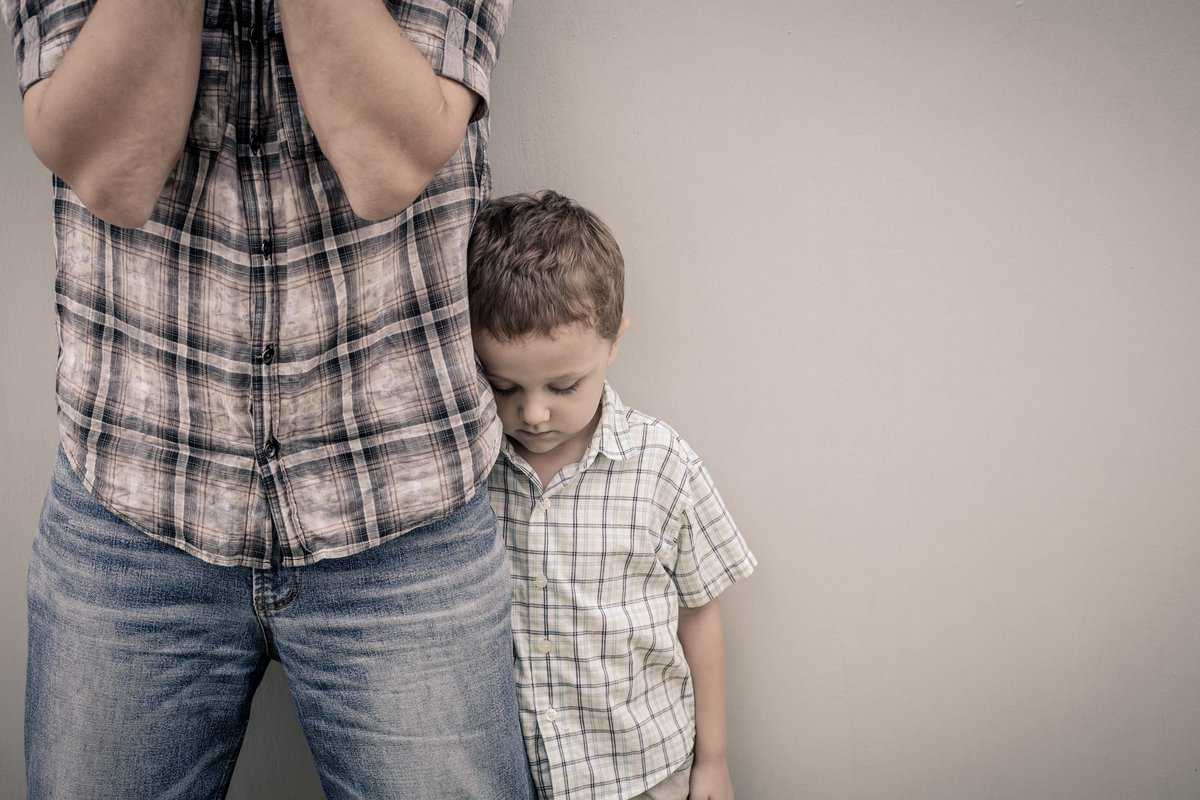The love that a parent feels for their child is so great that sometimes it’s possible to forget the need for boundaries.
Just like you and other adults in your life have the need for them in order to keep your relationship dynamic and healthy, so do your children.
Codependent parenting, however, means trampling your child’s boundaries or even rendering them unable to set any.
A Codependent Parent Is a Toxic Parent

Yeah, I must use the scary word. Nobody sane wants to be toxic on purpose – especially to their own child.
However, the need to form this sort of relationship with your children depends upon a lot more than your own intention.
It’s a subconscious urge that likely developed due to your own upbringing and childhood issues or traumas.
Abusing the Control a Parent Has Over Their Child
Parents are wholly responsible for their children, and naturally have a say, though that control can easily be abused.
This sort of toxic dynamic is often observed within a romantic relationship as well as between a parent and their child.
It means placing a huge amount of psychological and emotional pressure on the other person, to the point where they can’t act independently from you.
This has a catastrophic effect on children. They trust their parents unconditionally and therefore have no means to assert the necessary boundaries until it’s too late.
You Suspect You Might be a Codependent Parent? Look for the 7 Warning Signs

Even if your own life experience or traumas led you to become a codependent parent, it’s good that you’re open to learning more and making a change.
There are 7 main signs to look for if you suspect parent codependency:
- Controlling behavior
- Parentification
- Avoiding accountability
- Loose boundaries
- Abandonment issues
- Isolating the child from other people
- Not allowing your child any privacy
1. Your Child Isn’t Allowed to Make Their Own Decisions

Manifestation of this codependency sign depends upon the child’s age.
You may be a codependent parent if you never allow your child to make an autonomous decision.
It can be as little as the color of their new sneakers and as important as a university major.
You might truly believe that your child isn’t capable of making a good decision, but you must let them make their own mistakes in order to get better.
Otherwise, you’ll raise a person unable to ever truly be independent and confident in their own choices.
2. You Rely on the Child’s Emotional Support

This sort of behavior is popularly called ‘parentification’.
It means that you impose the caretaking and supportive role onto your child and subsequently force them to act as a parental figure to you.
This forces the child to take on a role that’s too overbearing for them and is far beyond their years.
The parent takes on the role of a victim, and the child is forced to grow up too fast in order to take care of them.
This type of codependent behavior greatly affects the way they behave in their adult relationships. It’s yet another violation of healthy boundaries.
3. You’re in Denial/Avoidant About Your Codependency Issues

Denial is the first phase of coming to terms with any of our harmful behaviors.
Someone may have pointed out your codependency or you’ve begun to suspect yourself. The harder you try to deny and excuse the behavior, the more likely it’s to be true.
Avoidance can mean refusing to communicate with your child and hear them out, in order to evade accountability.
Denial is inherently immature, and it would be the adult thing to accept responsibility and make positive change.
4. You Find It Generally Difficult to Set Boundaries

If you have difficulty setting healthy boundaries in your relationships overall, it’s very likely you’ll have the same issue with your child.
This can lead to you spoiling your children and allowing them to make trouble in school or their friendship groups – because you’ll always be there to handle it.
The inability to enforce boundaries is yet another thing that robs the child of learning about cause and effect firsthand.
5. You Fear Abandonment

I’d say every parent fears abandonment a little, as everyone knows their children will eventually grow up and lead their own independent lives.
It’s a natural fact every parent has to come to terms with.
However, the person who has actual abandonment issues overall, likely wouldn’t be able to gracefully handle their children leaving.
This can lead to some parents holding back or downright sabotaging their children, to make sure they never leave.
6. You Push Other People Away

Perhaps the first hallmark of a toxic relationship is isolation.
We can witness this in romantic relationships, where one person suddenly drops their closest friends and family once they meet someone new.
Likewise, a codependent parent may be inclined to push away the child’s other parent, grandparents, or anyone else who could have a say in their upbringing method.
This leaves them as the only predominant influence in the child’s life and is the highest form of manipulation.
7. Your Child Has Little to No Privacy

You must have an insight into your child’s life, clearly. Children are inexperienced and naive and have to be cared for.
However, within a home and among friends, they should have a healthy dose of privacy.
Every person needs some time to themselves, to rest or pursue their hobbies. Parents prying into their child’s privacy from an early age renders the child completely dependent.
I have witnessed a girl in her late teens getting her clothes changed by her mom and having her parents sleep over at her friend’s house with her.
This sort of behavior can become even scarier once the child is completely used to it and views it as normal.
Then, there’s no going back.
What Can You Do?

The best treatment for parent codependency is therapy.
The issues that cause a person to become a codependent parent are rooted deep in their own childhood.
A therapist can help you come to terms with your harmful behaviors. They can also help you open up and face your own emotions.
From there on, it’s up to you to build positive family dynamics and keep your codependent urges in check.

